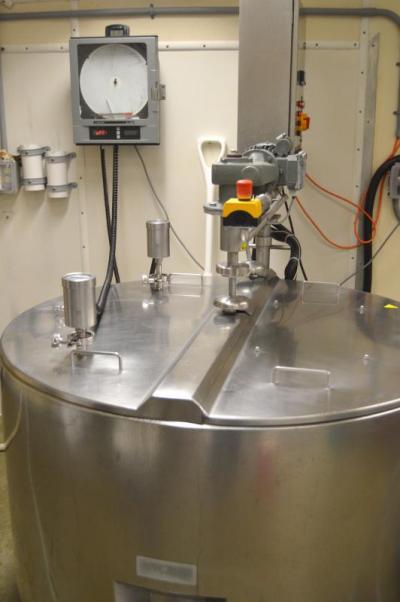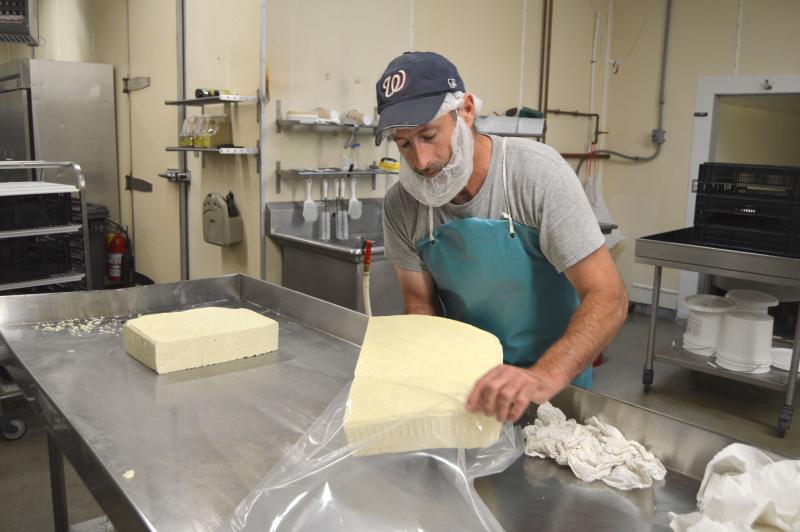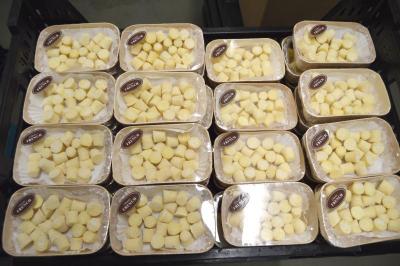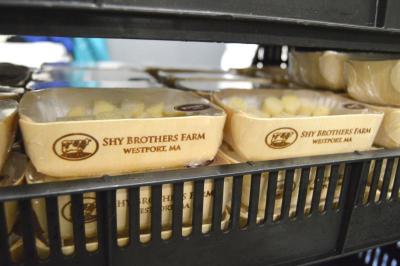Saving a third-generation dairy farm through artisanal cheese

The Santos brothers hit a rough patch back in the mid-aughts. Uncertain that they could keep their grandparents’ dairy farm afloat, they switched gears from milk to cheese. Nearly a decade later, it’s been a smash success.
“If you go back 30, 40 years, we had like 60 farmers,” said Karl Santos of his hometown of Westport. “We actually had more cows than people. There’s four guys left farming cows.”
His farm, Shy Brothers Farm, is one of them. While his three brothers — Kevin, Arthur and Norman — tend to 120 cows in Westport, Karl works at a small cheese plant tucked between the houses of Bakerville Road in Dartmouth. Rather than build an expensive cheese house in Westport, the brothers renovated a former slaughterhouse, which is about the size of a two-car garage.
The brothers, now third-generation farmers, used to sell milk wholesale until concluding that it wasn’t profitable, namely because the government controls the cost of milk. They looked into producing various foods, like butter and ice cream, before settling on cheese.
Without any prior experience, Karl Santos set out to learn as much as he could, and so he and his business partner and manager Barbara Hanley, ventured to France to learn about production.
“We went to France for two weeks and visited cheese makers and farms over there,” said Santos. “That’s where we found the recipe for Cloumage and Hannahbells.”
Cloumage is a soft cheese capable of pairing with sweet and savory dishes. Santos said it can replace ricotta, sour cream or cream cheese. He said some chefs have even made ice cream from it.
Hannahbells are thimble-shaped pieces of cheese that come in four different flavors: classic French, shallot, rosemary and lavendar. Traditionally called “trouser buttons” by the French, the Santos brothers named their version after their mother.
In addition to Hannahbells and Cloumage, Santos also produces mozzarella that has a light, milky flavor.
“There are different ways of making mozzarella,” Santos explained. “Most commercial mozzarella makers make it from skim milk. Most mozzarellas have no flavor. Whatever [milk fat] my cows produce, it all goes into my cheese.”
Following his brief stay in France, a French consultant returned to the states with Santos for ten days to train him further, and with that, Santos began tweaking the recipe.
“My consultant came, worked with me and gave me the recipe. But the milk changes all the time for me. You have to adjust for that. It’s a big learning curve. There’s always adjustments,” he said.
Santos said the biggest obstacle is keeping his products uniform so that customers who are buying his cheese at Whole Foods or through the Internet can expect the same flavor and consistency every time they buy.
“The smallest change you make to cheese, it changes the whole recipe. The smaller the cheese is, things happen a thousands times faster,” Santos said.
The inside of the Dartmouth cheese house resembles a chemistry lab. A large vat for pasteurizing milk is hooked up to a sensor that monitors temperature. But all the science involved in cheesemaking starts with milk from his farm — a lot of it. Santos estimates that his company makes 30 tons of cheese a year.
Santos said that while it may be cheaper for farmers in western states to produce milk because they have bigger pastures and can grow their own grain, making cheese in Dartmouth has made his company grow every year.














